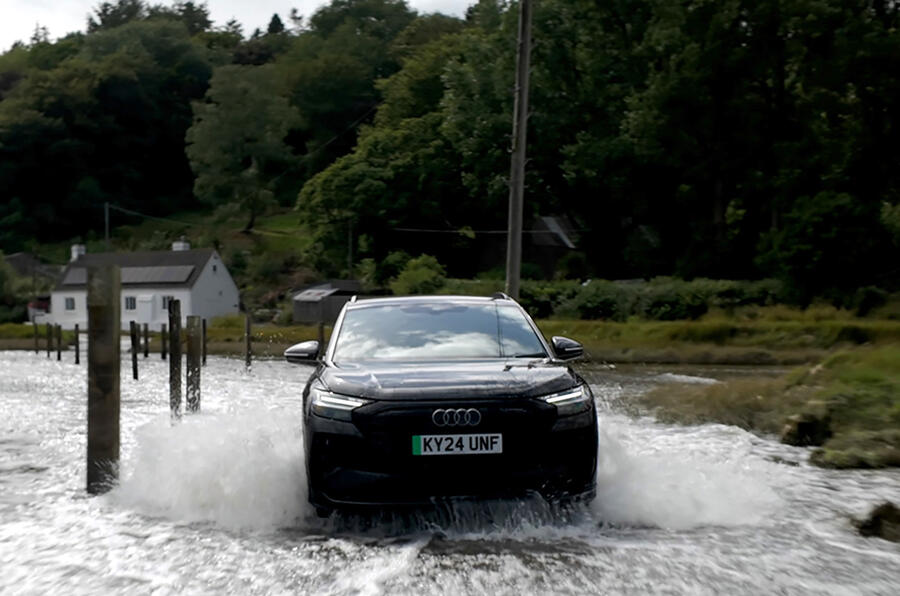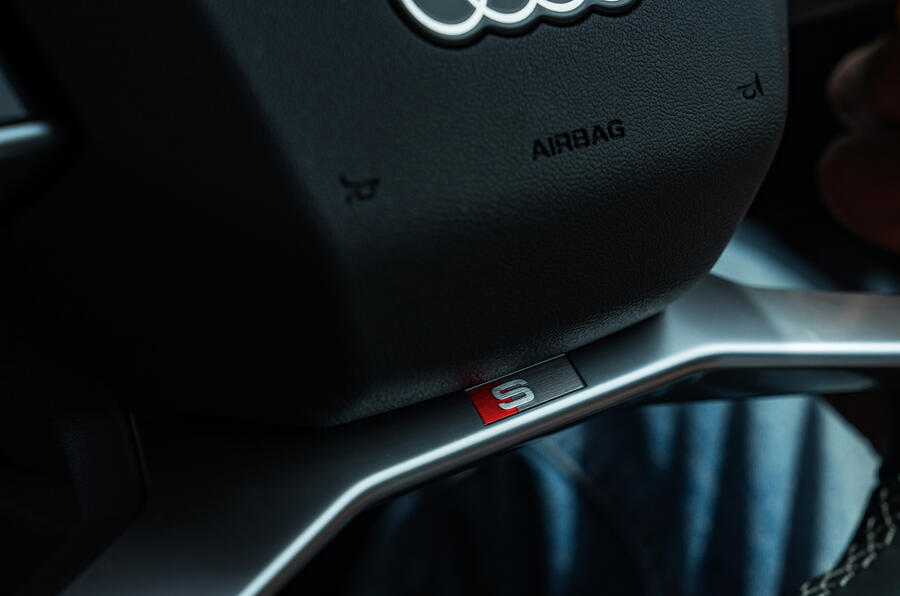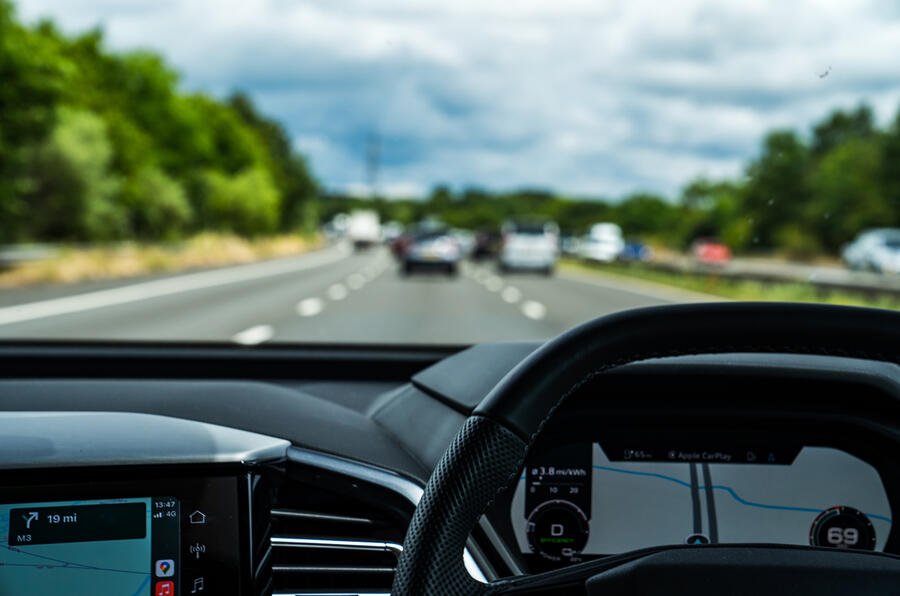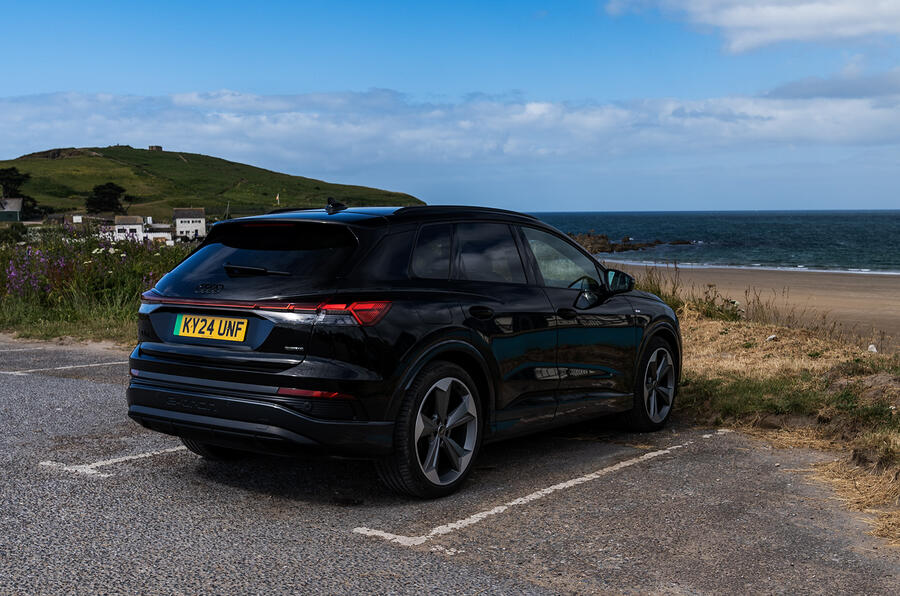Ever listened to a story or an anecdote from a normally reliable friend that you can’t quite believe is completely true? It happens. And it could be that you’ve heard more than a few if you’ve mentioned making the move to an all-electric car.
After all, there are plenty of myths and misconceptions around electric cars that have populated the media. But the fact is, much of this misinformation is outdated, unfounded or easily disproven.
The latest wave of all-electric cars – including the fast-growing range of Audi e-tron models – have been designed to address the big myths on range, charging and running costs. But what about the odd myths; the strange ones? Well, that’s where we’re here to help.
Learn more about the Audi e-tron range
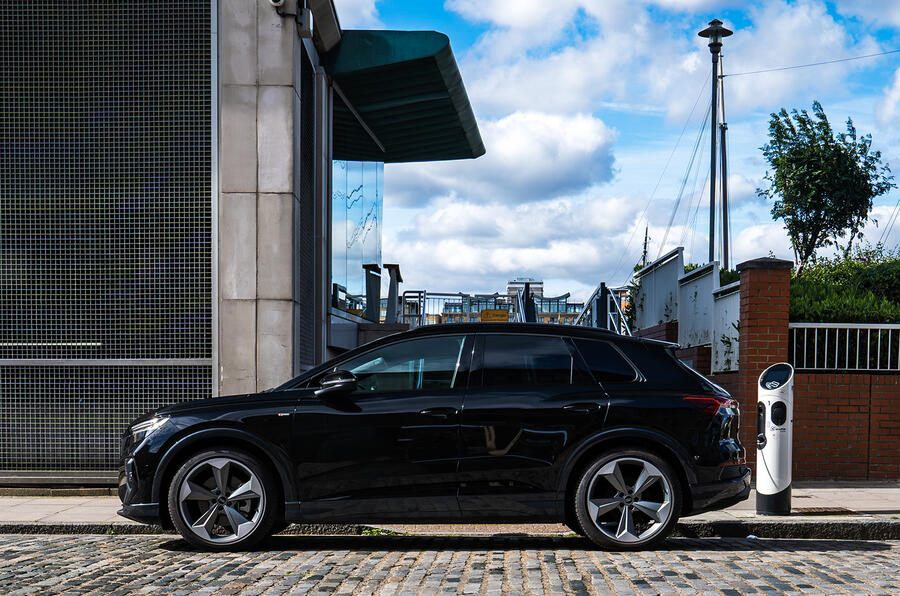
Myth #1: You need a driveway to own and charge an electric car
The top advice from every electric car owner is to charge at home: it’s much cheaper and much more time-efficient than using public charging. But what if you don’t have a house with a driveway? Does that mean you can’t enjoy the benefits of an all-electric car? Worry not. There are plenty of options for those of us who don’t own or rent a property with existing charging capability.
According to zapmap.com, as of April 2024 there were 61,232 public charging points across the UK at 32,697 charging locations.[1] That’s a 45% increase over the previous year, and it’s predicted we’ll reach 100,000 points by August 2025.[2] To put that in another perspective, there are currently just over 1m electric cars on UK roads[3], which means that there is around one charging point for every 17 cars.
The mix of chargers – especially in urban areas – is also favoured towards slower, more cost-effective 8kW to 49kW ‘destination’ chargers, which are located at the sort places where you’d spend a longer extended amount of time – such as city centre car parks, hotel car parks, supermarkets, retail parks and leisure centres. That means you can fit long-stay top-up charging around everyday activities.




